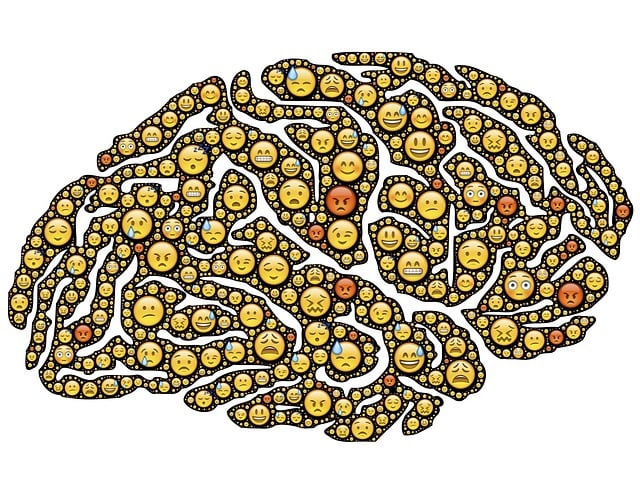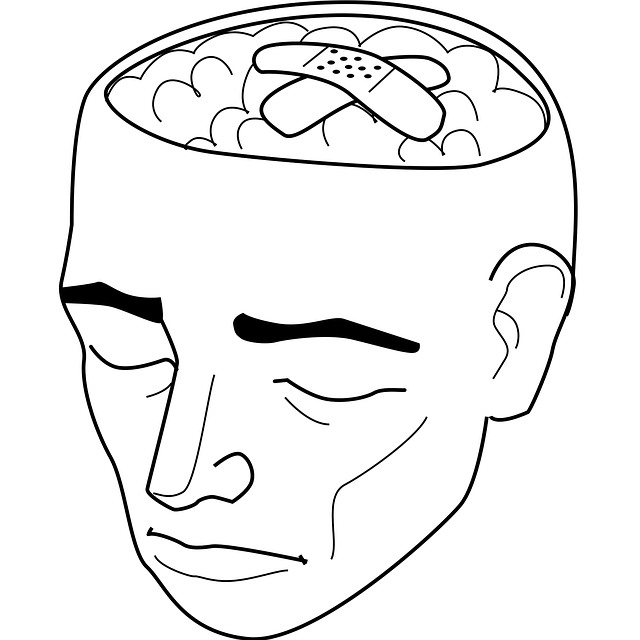Broomfield Bipolar Disorder Therapy (BBDT) offers a revolutionary approach to managing bipolar disorder through its Resilient Focus Method (RFM), incorporating evidence-based practices like cognitive behavioral therapy, mindfulness, and problem-solving workshops. This personalized method teaches emotional regulation, crisis intervention, and self-care strategies, empowering individuals to cope with mood swings and prevent episodes. By fostering resilience, open communication, and community bonds through group discussions, BBDT enhances mental well-being and promotes stability for those dealing with bipolar disorder, aligning with current Mental Health Policy initiatives.
Resilience is a powerful tool in managing mental health conditions like bipolar disorder. This article explores the RFM (Recovery, Resilience, and Mental Health) model and its role in fostering resilience through Broomfield Bipolar Disorder Therapy. We delve into the impact of this approach on mental well-being, offer insights on designing effective resilience-building exercises, and provide best practices for implementation in clinical settings. Additionally, we share real-life success stories showcasing RFM’s effectiveness in bipolar disorder management.
- Understanding RFM and Its Role in Resilience Building
- The Impact of Broomfield Bipolar Disorder Therapy on Mental Health
- Designing Effective Resilience-Building Exercises
- Implementing RFM in Clinical Settings: Best Practices
- Real-Life Success Stories: RFM in Action for Bipolar Disorder Management
Understanding RFM and Its Role in Resilience Building

Resilience is a crucial aspect of mental health, enabling individuals to bounce back from challenges and navigate life’s storms with adaptability and strength. This concept is particularly significant for those managing conditions like bipolar disorder, where mood swings can be intense and unpredictable. Broomfield Bipolar Disorder Therapy (BBDT) recognizes the power of Resilience-Focused Management (RFM) as a transformative tool.
RFM involves a set of strategies and exercises designed to enhance emotional regulation, one of the key components of managing bipolar disorder. By learning effective stress management techniques and crisis intervention guidance, individuals can gain control over their responses to distressing situations. This proactive approach empowers them to prevent potential episodes and promote overall well-being. Through RFM, individuals develop a deeper understanding of their triggers, allowing for better decision-making and coping mechanisms during times of instability.
The Impact of Broomfield Bipolar Disorder Therapy on Mental Health

Broomfield Bipolar Disorder Therapy offers a transformative approach to managing mental health conditions, particularly bipolar disorder. This therapeutic method focuses on empowering individuals to take control of their mental wellness through specific techniques and exercises tailored to address the unique challenges associated with bipolar symptoms. By combining evidence-based practices with personalized guidance, the therapy provides a roadmap for self-improvement and resilience building.
One powerful tool within this framework is Mental Wellness Journaling Exercise Guidance. It encourages individuals to reflect on their moods, thoughts, and behaviors, fostering awareness and helping them identify triggers for anxiety relief. This practice also promotes self-care by providing an outlet for expression and a way to track progress over time. Additionally, Broomfield Bipolar Disorder Therapy incorporates strategies to enhance overall mental wellness, including effective self-care practices that individuals can incorporate into their daily routines, thereby improving their ability to navigate the highs and lows of bipolar disorder.
Designing Effective Resilience-Building Exercises

Designing effective resilience-building exercises is a nuanced process that requires tailoring activities to cater to diverse psychological needs. Just as Broomfield Bipolar Disorder Therapy offers specialized treatments, resilience training should be approached with an understanding of individual and group dynamics. A comprehensive program should incorporate various techniques, such as cognitive behavioral therapy elements, mindfulness practices, and problem-solving workshops, to foster emotional well-being promotion techniques that resonate with all participants. This holistic approach ensures that exercises not only strengthen coping mechanisms but also align with current Mental Health Policy Analysis and Advocacy initiatives, enhancing the overall mental health awareness and resilience within communities.
The design should prioritize engaging and interactive activities that encourage active participation. By creating a safe and supportive environment, facilitators can guide individuals through exercises that challenge them to confront and overcome stress triggers, ultimately building resilience against future adversities. Incorporating real-life scenarios and group discussions allows for the exchange of Emotional Well-being Promotion Techniques, fostering a sense of community and shared understanding. This collaborative aspect is vital in strengthening individuals’ ability to navigate life’s challenges, especially those with pre-existing mental health conditions like bipolar disorder.
Implementing RFM in Clinical Settings: Best Practices

Implementing RFM (Resilience, Flexibility, and Mastery) in clinical settings offers a powerful approach to enhancing patient resilience, particularly for those managing bipolar disorder. Best practices involve tailoring RFM strategies to individual needs, ensuring a collaborative environment that fosters open communication. Therapists playing the role of guides help clients navigate emotional landscapes, encouraging self-awareness and adaptive coping mechanisms.
Integrating Stress Reduction Methods, Crisis Intervention Guidance, and Mind Over Matter Principles within RFM can significantly bolster patient outcomes. These practices enable individuals to develop effective stress management skills, enhance emotional regulation, and cultivate a sense of control over their mental health journeys. By combining these evidence-based techniques with RFM principles, clinicians can offer comprehensive care tailored to address Broomfield Bipolar Disorder Therapy needs effectively.
Real-Life Success Stories: RFM in Action for Bipolar Disorder Management

In the realm of mental health management, real-life success stories offer a glimpse into the transformative power of Resilient Focus Method (RFM) techniques, particularly for individuals grappling with bipolar disorder. Broomfield Bipolar Disorder Therapy has been at the forefront of integrating RFM and resilience building exercises, demonstrating remarkable results in enhancing patients’ coping mechanisms. This therapeutic approach goes beyond traditional talk therapy by incorporating practical strategies that empower individuals to navigate mood swings and maintain stability.
The implementation of empathy-building strategies and compassion cultivation practices within RFM sessions fosters a sense of understanding and self-compassion among patients. Healthcare provider cultural competency training is also integral, ensuring therapists are equipped to offer tailored support. Through these comprehensive methods, Broomfield Bipolar Disorder Therapy provides a holistic framework that encourages resilience, allowing individuals to take charge of their mental health journey and experience improved overall well-being.
The implementation of RFM and resilience-building exercises has proven to be a powerful tool in managing bipolar disorder, as evidenced by the positive impact of Broomfield Bipolar Disorder Therapy. By combining these strategies, mental health professionals can effectively equip individuals with the skills to navigate life’s challenges, fostering overall well-being and enhancing their ability to cope with symptoms. Through best practices outlined in this article, clinical settings can successfully integrate RFM, leading to improved patient outcomes and a brighter future for those living with bipolar disorder.














